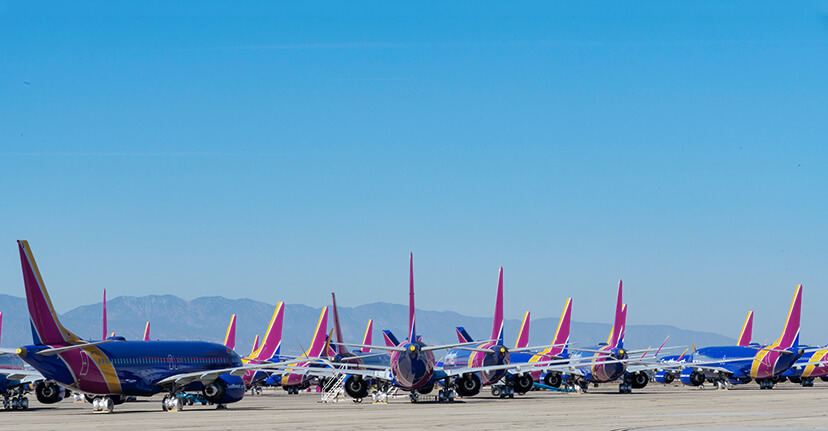Supply-Chain Woes Begin to Hit the Aviation Industry
Component Shortages Strike as Demand for Planes Rises
Supply-chain delays and components shortages are spilling over into the aviation market, making it difficult and more costly for planemakers to get ahold of certain parts. This comes as demand for commercial planes is surging, and could put the airline industry’s recovery at risk.
So far the aerospace industry has avoided component shortages, largely because Boeing (BA) and Airbus (EADSY) are making fewer planes. But demand for narrow-body jets is now surging, leading to shortages of semiconductor chips, plastics, and other materials used to build planes. For example, PPG Industries (PPG), a paint and coating supplier for the aerospace market, is facing significant shipment delays.
The Airline Industry Works to Recover From Pandemic Challenges
Rising costs and shipping delays are worrisome for the aviation industry. The sector is beginning to recover from the pandemic, but it is still on shaky ground. Overall weak demand makes it tougher for equipment makers and suppliers to pass along increased costs.
In the first half of 2021, aviation companies paid between 27% and 44% more for raw materials compared to a year earlier. The industry is also facing shortages of skilled workers which hurts production. To meet expected production increases next year and beyond, aviation companies need more staff.
Aviation Industry Shoulders More Costs
To circumvent supply-chain issues, aviation industry companies are finding creative solutions. For example, planemaker Embraer (ERJ) is holding on to more inventory at its warehouses despite increased costs. Embraer has increased inventory at local warehouses across the globe to limit shipping disruptions.
For now the aviation industry appears to be taking supply-chain hiccups in stride. But if Boeing and Airbus decide it is time to begin producing more planes again, they could come up against constraints. Since that is not expected for another year or two, the aviation market may not face the same supply-chain damage that the vehicle industry has dealt with. It will be interesting to watch how the aviation industry manages business conditions heading toward the end of the year.
Please understand that this information provided is general in nature and shouldn’t be construed as a recommendation or solicitation of any products offered by SoFi’s affiliates and subsidiaries. In addition, this information is by no means meant to provide investment or financial advice, nor is it intended to serve as the basis for any investment decision or recommendation to buy or sell any asset. Keep in mind that investing involves risk, and past performance of an asset never guarantees future results or returns. It’s important for investors to consider their specific financial needs, goals, and risk profile before making an investment decision.
The information and analysis provided through hyperlinks to third party websites, while believed to be accurate, cannot be guaranteed by SoFi. These links are provided for informational purposes and should not be viewed as an endorsement. No brands or products mentioned are affiliated with SoFi, nor do they endorse or sponsor this content.
Communication of SoFi Wealth LLC an SEC Registered Investment Adviser
SoFi isn’t recommending and is not affiliated with the brands or companies displayed. Brands displayed neither endorse or sponsor this article. Third party trademarks and service marks referenced are property of their respective owners.
SOSS21101803



